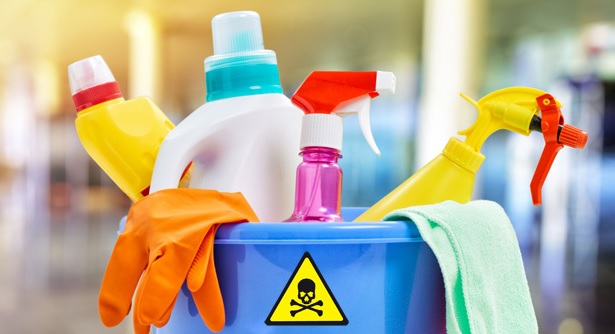
Purchasing household cleaning products that are full of harsh chemicals, may seem like the only solution for battling tough dirt and germs, but in fact there are many more natural products available that will do the job just as well, and often at a fraction of the price:
Soap:
Many of us like to use antibacterial soaps these days, as we believe them to be the only way of killing harmful bacteria that may have been transferred to our hands, but the antimicrobial chemical ‘triclosan’, is believed to disrupt our thyroid function and hormone levels. Not only that, but when the soap containing this chemical is mixed into wastewater, it can cause sex changes in aquatic wildlife.
Many health experts also believe that the continued use of this and other antibacterial chemicals, is helping to promote the types of bacteria that are becoming resistant to treatment from antibacterial solutions. The long-term effects of this could be devastating for mankind.
An alternative to using these types of soaps, would be regular soap and water, which is proven to be just as effective at destroying germs. Hand sanitizers that contain alcohol instead of triclosan, would be far better to use, if you must use them at all.
Chemical cleaning products:
Using products that contain harsh chemicals may seem like the best way to eliminate germs and bacteria in our homes that may be harmful to our health, but ironically, they can end up doing us more harm than good.
Products containing ammonia can trigger asthmatic attacks, and oven cleaners and drain unblocking solutions can be deadly to children who may be able to get their little hands on them.
There are many natural items that you can use to clean your home, such as vinegar, baking soda and lemons, and when applied correctly, most can be highly effective for cleaning and sterilising your home without being harmful to the health of you and your family, or the environment; they are often considerably cheaper too, and you may even have these items already in your store cupboard.
Weed and bug killers:
These synthetic pesticides that we often buy when weeds or bugs become a problem in our homes and gardens, are best avoided altogether. Many different types of herbicides have been linked to some forms of cancer, brain damage and Alzheimer’s, and they can all be harmful to the environment, too.
If you have a problem with bugs in your home, tackling the issue that caused them to invade in the first place, is often the best solution. Such as ants who have located a sticky honey jar in your pantry or crumbs left in a tempting trail all over your work surfaces. Clean up food spills and store items appropriately, or block holes and gaps where they entering in from, with wood shims and a caulking gun.
For a perfect lawn, instead of using pesticides and chemical fertilisers which kill the health of the soil, try replacing some sod with native plants; they shouldn’t require as much maintenance or water and will not contribute to flooding, as chemical products do.
Synthetic fragrances:
There are chemical based fragrances in many household products, such as detergents, shampoo’s, lotions, soaps and scented candles to name but a few, and some are known carcinogens and reproductive toxicants, even when used in small amounts and in products which contain low levels.
Using products which don’t contain any added fragrances is far kinder to you and the environment, and if you’re trying to eliminate a bad smell in your home, set out some baking soda, or simply open some windows and doors, nothing beats the fresh smell of the great outdoors! A bowl of white vinegar left in a room will also dispel any nasty whiffs without causing harm.


